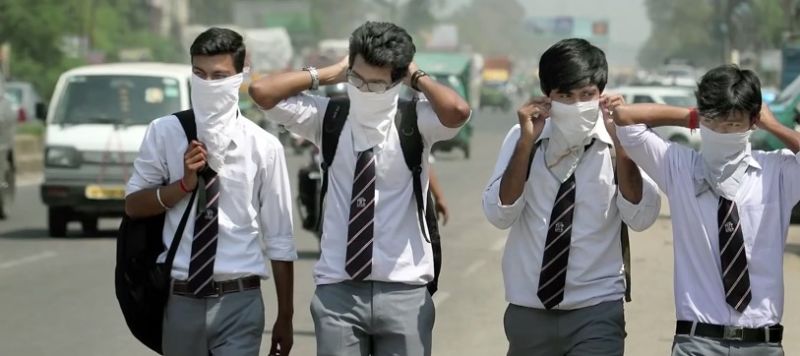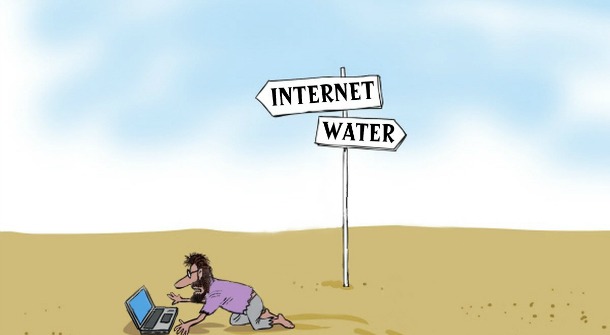The implications of pollution are not just adverse on people’s health but it also effects mental development of children and young people.
Priyanka Yadav | The New Leam
 As per the findings of the latter investigation, prolonged exposure to air pollution can change the structure and function of the brain.
As per the findings of the latter investigation, prolonged exposure to air pollution can change the structure and function of the brain.
As per the statistics produced by the World Health Organisation 2016, air pollution is the single largest health problem in the country today. Every year nearly 4.2 million deaths are accorded to air pollution. Delhi has been worst hit by the affects of air pollution making the city a gas chamber. On the one hand where air pollution has made lives difficult in the capital city on the other hand the same air pollution has become an opportune time for capitalists to launch products like air-purifiers, masks, and many other products that ensure clean breathing.Air pollution has a direct and visible effect on the health of the person who is living in that environment. Asthma, bronchitis, lung cancer, sore eyes, headache, disease related to stomach these are the commonly known side effect of air pollution
Much like the effect of air pollution on physical health of people, air pollution affects the mental health of human beings as well.
The reports of two respective studies, one titled “How common Air Pollutants affect Teenage Mental Health“ published in the Journal of Psychiatry Research and the second one titled “Happiness in the air: How does a dirty sky affect mental health and subjective well-being?” suggest that the air pollution has a direct negative impact on the mental well-being of human beings especially children.
As per the findings of the latter investigation, prolonged exposure to air pollution can change the structure and function of the brain. The adverse effect of air pollution is such that it contributes to declining level of happiness especially hedonic happiness amongst children living in highly polluted air. Air pollution also affects the health of a new born baby whose mother has been exposed to prolonged air pollution. Evidence’s suggest that environmental exposure can cause infants to be born pre-mature or low weight or to be born with certain birth disease or defect. Toxic air in early childhood years can affect the functioning of the lungs and mostly importantly affect the neuro-development of children.
Research studies have shown problems like high stress, poor memory, depressiveness, diagnosis of depression and suicide are directly linked to the high concentration of Particulate Matter more than 2.5, Nitrogen dioxide and carbon dioxide.
A child’s overall health is linked to various factors like food, play, safe and secure environment at home as well as in the society in which he or she is living, their friends and family members their community etc. Most of the factors are taken care of by their parents and teachers and community members but little attention is paid to the environment in which their children are living especially the natural environment. In the age of modernity and fast growing technology we have been observing the phenomenon of shrinking spaces be it the space of living or space of play.
The importance of playing in field in open areas with mud and soil is least realised by many parents. Parents are fascinated by the city born culture of dates, gaming in malls, video games, play stations and games on tablets and mobile phones. They expose their children to variety of technological development (although important) but little do they realise they have exposed their child to a monster.
Early childhood is the stage of physical and mental development in children during which it is required for them to utilise and develop their physical and mental capacity by exposing themselves to nature and outdoor activities.
Unfortunately so, the city space does not provide them a good ambience to get indulged into outdoor activities. Not only do they lack space but today they even lack the air for clean breathing. Breathing as an exercise was considered to be the most recommended remedy to stress and anxiety related issue but the growing level of air pollution has made it dangerous for human beings especially children to breathe at a higher rate. Playing or physical activities outside is also plagued by air pollution as an indulgence in any form physical activity increases the consumption of air by humans and if we breathe the polluted air and the toxic substance we are nowhere making ourselves healthy but rather making ourselves more susceptible to diseases like cardio vascular problems and respiratory illness.
Not only does the inhalation of toxic substance and particulate matter affects the physical health and mental health of the person but the thick layer of smog which hampers the reach of sunlight to the atmosphere alters the psyche of children and man. Air pollution leads to sustenance of a dingy atmosphere for a long period of time with no adequate sunshine or wind this kind of atmosphere affects the mood of the individual by further leading to problems of depression, fatigue, stress and anxiety. Delhi has been witnessing poor quality of air for quite a while and it is high time to think beyond the comforts of air conditioner, air purifiers and vehicles and look for sustainable options such that a healthy environment can be fostered for the overall development of the individual.














